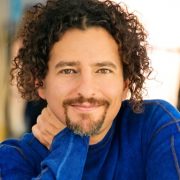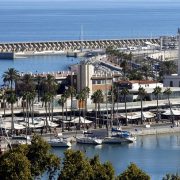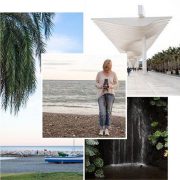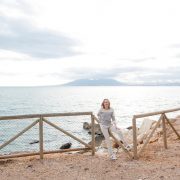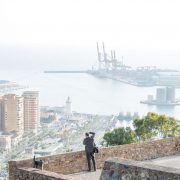The musical rebirth of Gaelle Boudier – Singer and vocal coach in Austin, Texas.
MEET AUSTIN-BASED GAELLE FROM FRANCE!
We had the pleasure of interviewing Gaelle Boudier, an Austin, TX based singer and vocal coach. Singing, Coaching, and Teaching, are three words which accurately reflect her world.
Her strong connection with music led her to study several instruments and graduate from the French Conservatory of Music.
Gaelle became a skilled vocal and musical coach, as well as a professional singer starting in the south of the France, to San Francisco Bay Area, and now in Austin.
Gaelle, how did you become a vocal coach and singer?
My story? At first, it’s no different from anyone who is dreaming about music. A song, an instrument, a chord, a moment of life…. everything is linked.
As far as I can remember, I was always attracted to music and dance. During my childhood, my parents and grandparents loved to listen to music. I started singing along all the hits I found in their music collections. I was fascinated when my grandfather played the harmonica. Even though he had experienced a major stroke, he still managed to find the strength to play. Music was such an important part of his life.
My parents had a big house in the South of France with three floors, a grand staircase, and many little nooks. There were multiple areas with a big echo – like the stairs or in a little bathroom. That’s where I loved to sing and invent melodies and lyrics… I was dreaming of the day I would be in front of a mic singing for a crowd!
At the age of four, I was giving “my first singing classes” to my dolls and my family. Everybody in the house, even my parent’s friends had a private lesson, haha.
By chance, I found at the back of the house, an old and dusty Bontempi organ. It was my first musical instrument – I was trying to play and sing at the same time.
Later, I joined a school choir. It was a revelation! I took a test and was admitted to the Conservatory of Music. I started studying music in college alongside my music school classes. After high school, I was supposed to enter nursing school. However, the day I returned my registration form, I changed my mind. I knew all I wanted was to dedicate my life to making music.
Instead of nursing school, I was happy doing what I loved: singing, playing, studying ten to twelve hours of music a day. I shared my time between philharmonic and harmonic orchestra, choir, classes, internships and shows.
My career was on track…
Do you feel you are more a singer or a vocal coach?
I couldn’t choose between my public and my students. I’m doing both by choice. I love to share, whether on stage or in a classroom.
When you sing or play in front of an audience, feeling this energy is totally amazing. All my senses are awake, all my emotions are multiplied. I like to perform and see my public on this musical journey with me, giving joy by offering them a moment of escape, a musical break. It’s fascinating!
I feel complete when I’m passing on my knowledge, it is a true vocation. Teaching people to improve their voice by not only doing some vocal technique but also a real exchange. Taking into consideration the student’s unique voice and according to their individual needs, instructing confidence by overcoming shyness and receiving in return is an every day gift. I like to think that I can give this breath of freedom to my students.
Where do you draw inspiration from?
After studying classical music for several years in middle school and high school, one of my teachers opened me up to other musical tastes. I experimented with different music styles such as baroque, modern, rock and jazz. I even took part in a gospel choir at some point.
Today, my choices and main inspirations come from singers such as Eva Cassidy, Dany Brillant, Diana Krall, Nougaro or from bands like Muse or Queen… I discovered that I love playing with vocal colors and singing jazzy lounge, bossa, rock songs and the great classic French songs.
One of the greatest inspirations in my life is Serge Martial, the singer of Route 66. I had the opportunity to meet and work with him in San Francisco. His philosophy in life was to Live, Laugh& Love… He enjoyed each moment in his life. I became a workaholic, because of the pressure I felt from the classical music world where all has to be perfect. He became a mentor to me, he gave me the confidence and lightness that allowed me to truly open myself again and become the person I was hiding for so long.
He took part in my musical rebirth.
My musical rebirth? Can you share a story that occurred to you in the course of your career?
My career has had two important and decisive turning points.
The first was during my university years, I had graduated with honors and was on a path to becoming a music teacher, a professional musician and singer. To become a certified music teacher in France, you have to pass a final entrance exam.
I worked very hard to prepare for this, refusing to go on vacation or to my friend’s parties I knew that despite all my skills or knowledge, my main weakness was self-confidence.
Against all odds, despite my hard work and my good grades in all my school curriculum, and because it’s a competition, I failed the oral test. Only 9% of the candidates were accepted. I was totally stressed out, crying a few minutes before entering my exam room. It felt like my entire life was going to be played out over these few hours.
I was too far out of my comfort zone. I was unable to be myself during this crucial oral exam. I put too much pressure on myself. This blunt judgment on my capacity to manage my stress, more than my singing and musical skills and my desire to share, spoiled the image I had of myself. It opened the door to fear the judgement of others.
The consequence of this failure lasted almost 15 years.
However, I couldn’t imagine life without music or songs. No exam was going to take that away from me. I was still singing and performing in bands, teaching private lessons, working as a substitute teacher in French national education, and as singing teacher in an association of Performing Arts.
My classes, students and shows were successful. But still, I had the feeling of being an ‘imposter’. The fear of feeling judged by others made me incredibly nervous…. It’s crazy how failing an exam can undermine your self-esteem!
So alongside my musical activities, I started working as a manager for a famous luxury brand in France until moving to California in 2013.
CALIFORNIA DREAMING…
The second turning point was my expatriation.
It was a life changing experience to live in a foreign country. I was out of my comfort zone all the time. I didn’t speak English at all. I was far from my family, my friends, my habits. So I had to trust my abilities to make it work for me, but also for my family who always supported me. I had no other choice but to reinvent myself. Singing played an essential role, taking back its rightful place in my new life, and it has been my buoy.
In the French community, several people asked me to start teaching them how to sing. It gave me such pleasure that I also started to give some classes, as a volunteer in a French Association. It was a breath of fresh air. I felt really happy to go back to my roots.
The desire of singing in front of an audience never left me.
You know, that unforgettable utopia feeling of performing in front of people? In 2018, when I heard about an event with live music and vendors, called The French Fair in the Bay of San Francisco ( around 5000 to 6000 people attend) I decided to apply. I presented my work to the manager who then hired me to perform there. The event was a success. When I left the stage, I had three proposals for other events, a wedding cocktail, a Christmas party of the Alliance Francaise of San Francisco and the next French Fair.
It’s not without any emotion that I can tell you today, that at that time, I felt very proud of what I had accomplished, full of energy, and finally at peace with myself.
How does this experience serve your professional life?
It gave me the conviction to include in my classes, beyond the vocal technique, an in-depth work on self-esteem.
Learning to let go of vocals, accepting mistakes, being prepared to fail are an essential lesson to learn for every musician. No one had ever explained this to me. Performance and success were the only crucial part of my training so I didn’t have the tools to accept a failure before.
Now I know I can bounce back from any failure, and it’s very important to communicate this to my students.
When I prepare myself to do a performance, I am aware that no audience belongs to me. I realize that only a real sincere investment will make the magic work for any audience.
After doing this hard work, knowing that music always healed my doubt, I wanted to go further. I was convinced that music is an incredible gift that can help to manage emotions and express feelings. I followed a Music Therapist training which extended and completed my musical expertise perfectly. I worked for almost two years in a private clinic where I started a music therapy program. Music improved the quality of life of my patients, as a tool to build positive energy. My goal was reached.
How have you used your success to bring goodness to the world?
Since I was a teen, I always gave some of my time as a volunteer in several non-profit organizations. Offering my services is my little contribution to help others.
This year, when the stay-at-home order started, I offered two free classes per week. The first for teen/adult access to music therapy by the voice. The second for kids, sharing a musical story time. I thought about doing this for 3 weeks during the lockdown, but I ended up doing it from March to July. My goal was to give back some fun and relaxing activities during this crazy crisis.
With the Covid-19 situation, I realized that families have been facing some difficulties, such as a decline in financial income. So I decided to share my knowledge for free.
I started creating several advice sheets each month, explaining some vocal technique points and proposing exercises for people who want to work on their voice to speak with more confidence or sing. It’s geared towards everybody, beginner to advanced, with or without musical instruments and/or musical skills. If someone has a question or wants to try a voice lesson, I offer a free 20 minutes lesson.
I am offering free webinars as well. On the next one, I will teach how people can fight vocal fatigue. Now that we spend most of our time using a computer, we often use our voice badly. Some of us raise the volume of their voice and we force it unnecessarily. The webinar aims to help people to avoid those problems.
What are some of the most interesting or exciting projects you are working on now?
I’m still working on new songs and I’m very keen to have the opportunity to perform in downtown Austin, the city of music! Of course, I have to wait for the end of the pandemic. In the meantime, I performed a few online concerts, it’s totally different but I really like the opportunity to stay close to my public.
I continue my vocal coaching classes, spoken voice and singing voice, with more and more students from California, Texas, France, New York, Connecticut…
I cooperate with schools to offer my class as well.
Today, with virtual classes, limits are only those you impose on yourself.
One important thing for me is to coach people. They can develop confidence in their vocal abilities. Having learned from my past, I created a full program, available since July, on the voice and image alignment.
Vocal work is not only for singers. Everybody can improve the quality of their voice. For example improving diction or reducing stress before a speech.
Unblocking the voice and gaining vocal presence to increase your self-esteem, working on the phrase to be more convincing, using your vocal color to share the right emotion, and understanding that when the voice is controlled, you will improve the quality of the message you can express.
What are your “5 things I wish someone told me when I first started” and why. Many of us wish we knew better when we were younger…
My first advice is, if you want to be a professional in your discipline, you must have self-confidence. Don’t be too harsh with yourself. We all make mistakes, so don’t stay stuck on your failures. Instead, remain focused on your capacity to bounce back.
My second advice is to dare to test new things, be ready to work hard.
Talent is not sufficient to succeed, there will be a lot of sacrifice. To become a professional musician is like becoming an athlete. You have to stay focused on your objective and regular work is an integral part of your progress. Don’t hesitate to share your doubts with your family, friends, and lessons with mentors that can help you see a different perspective.
My third is to start to take care of your voice, have plenty of sleep, good hydration, let your vocal cords rest if you feel you are tired and practice self-awareness of your body needs.
Next advice, if you want to make faster progress, record yourself. It can be hard at the beginning, but a recording allows you to isolate your weaknesses, and to work with precision. Take the habit to listen to yourself. Work regularly to strengthen your vocal cord, create vocals automatisms by controlling your vocal gesture.
And my last is to never forget who you are, listen to your heart, and remember your pleasure when you did it for the first time!
Where do you see yourself in five years in your life and career?
Surrounded by my family and musicians, working with composers and singing my own nsongs. But still providing vocal classes as well.
I’m a singer and a vocal coach, invested in her passion, and first of all, my place is in front of you, whether on stage or in the classroom, sharing my emotions and my musical universe.
What is the best way our readers can find and /or follow you?
Website : www.gaelleboudier.com
Linkedin : https://www.linkedin.com/in/gaelle-boudier-7ab20015a/
Facebook : https://www.facebook.com/gaelleboudiersinger/
Instagram : https://www.instagram.com/gaelleboudier.singer/
Gaelle, this was very inspiring.
Thank you so much for joining us!
Find here two YouTube link:

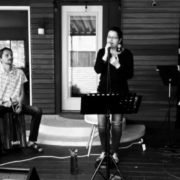
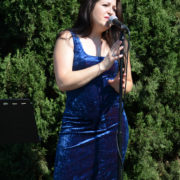
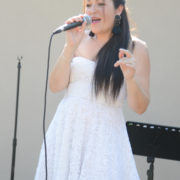
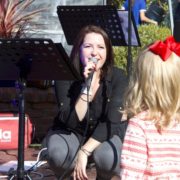
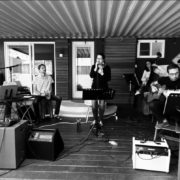
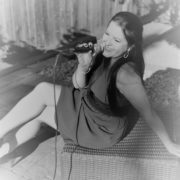
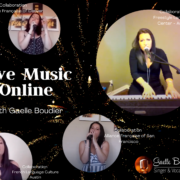
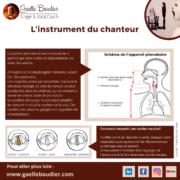
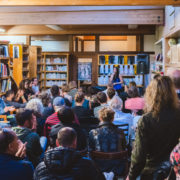

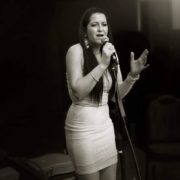




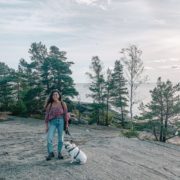
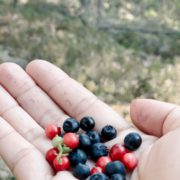

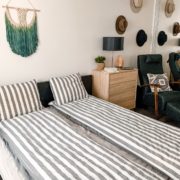

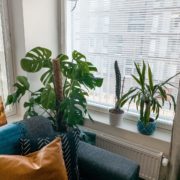
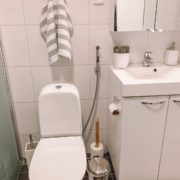
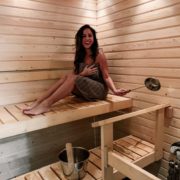
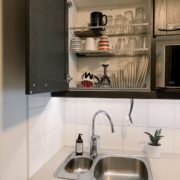
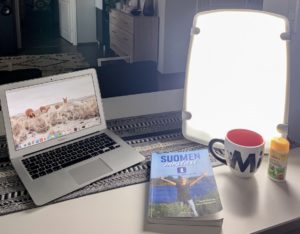

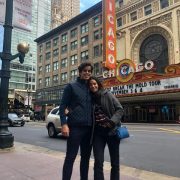

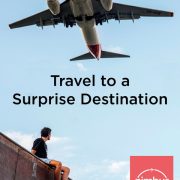
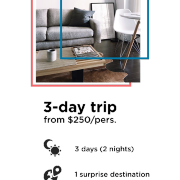
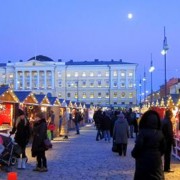

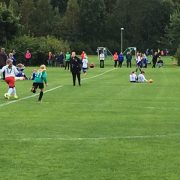





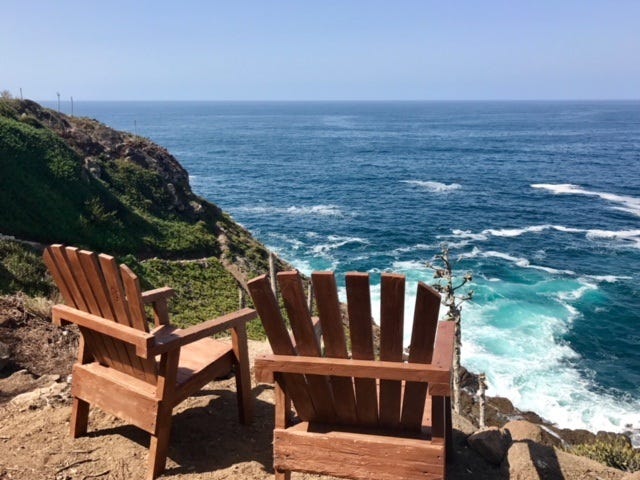
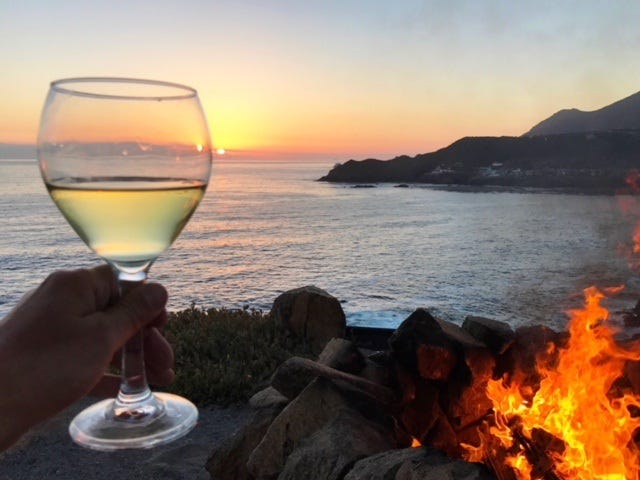

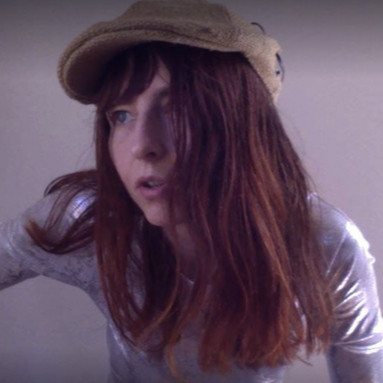 Overnight, many of my friends have become great experts on the culture of my home country — a place they have never visited.
Overnight, many of my friends have become great experts on the culture of my home country — a place they have never visited.